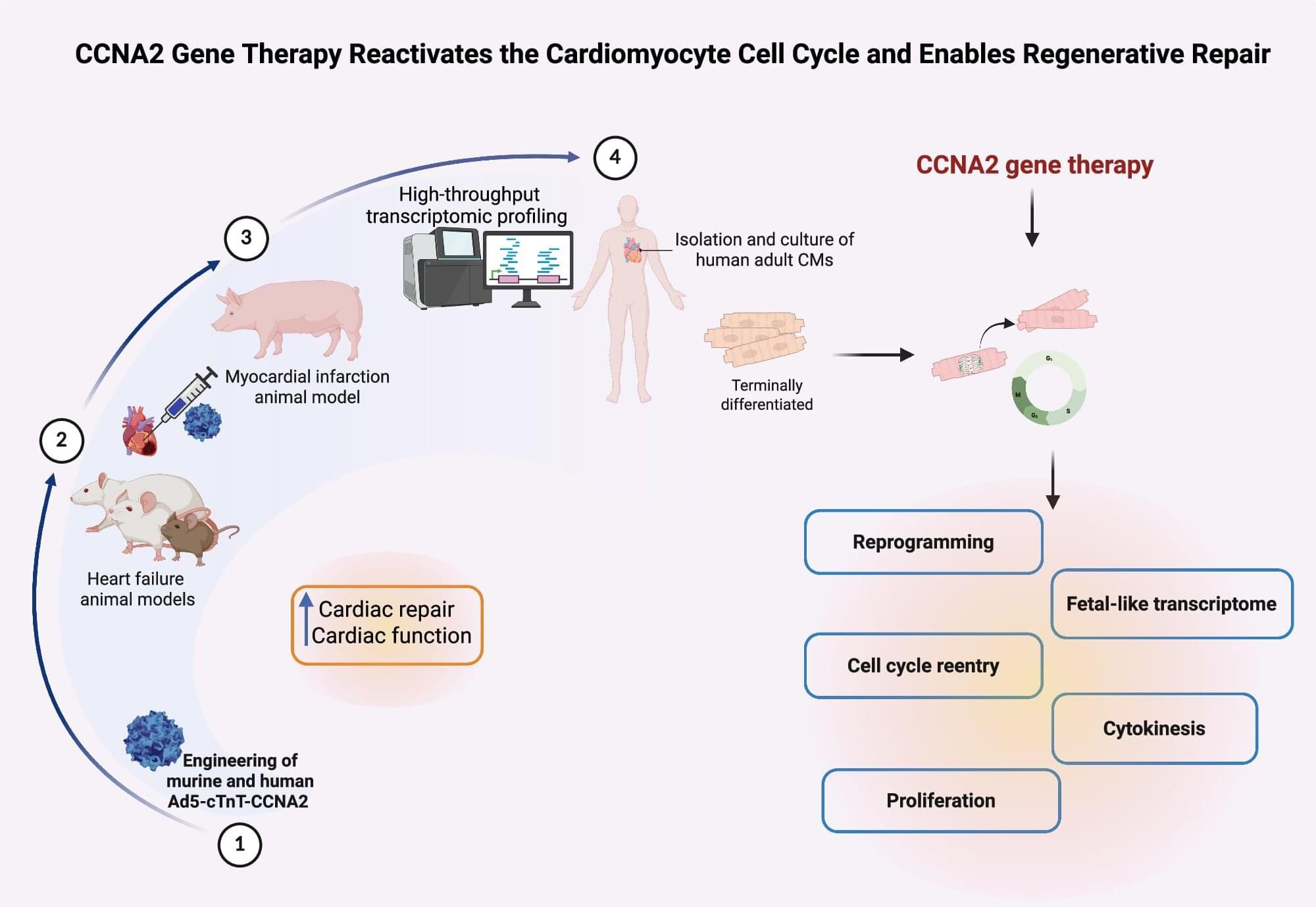Around the globe, heart disease remains one of the top causes of death. Once patients begin to suffer from serious heart problems, like heart attacks and heart failure, the heart muscles become damaged and are difficult to treat and repair. Although many therapies have been developed to treat symptoms, full recovery to a pre-disease state has been essentially impossible. This is due to a lack of regeneration ability in adult human heart cells. Studies using stem cells or progenitor cells for repair have demonstrated limited efficacy in clinical trials, thus far.
However, there may be new hope for these patients. Researchers from the Icahn School of Medicine at Mount Sinai in New York have been working to turn back time by switching on a gene known to regenerate heart muscle cells, or cardiomyocytes. Their study, recently published in npj Regenerative Medicine, indicates that adult human hearts may be given the ability to regenerate themselves with future therapies.
